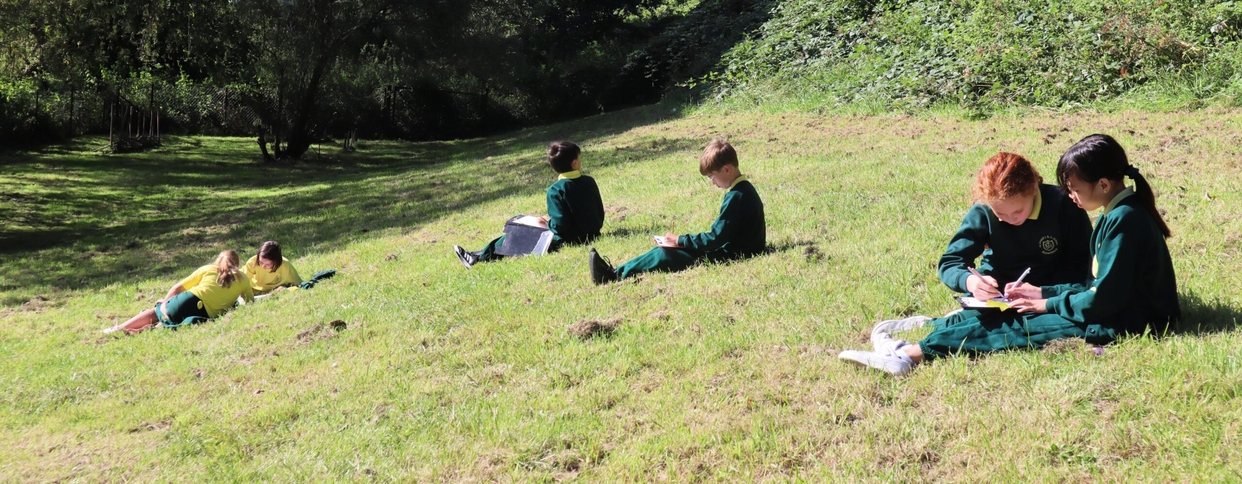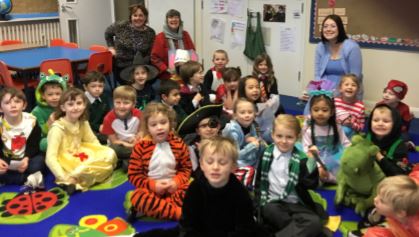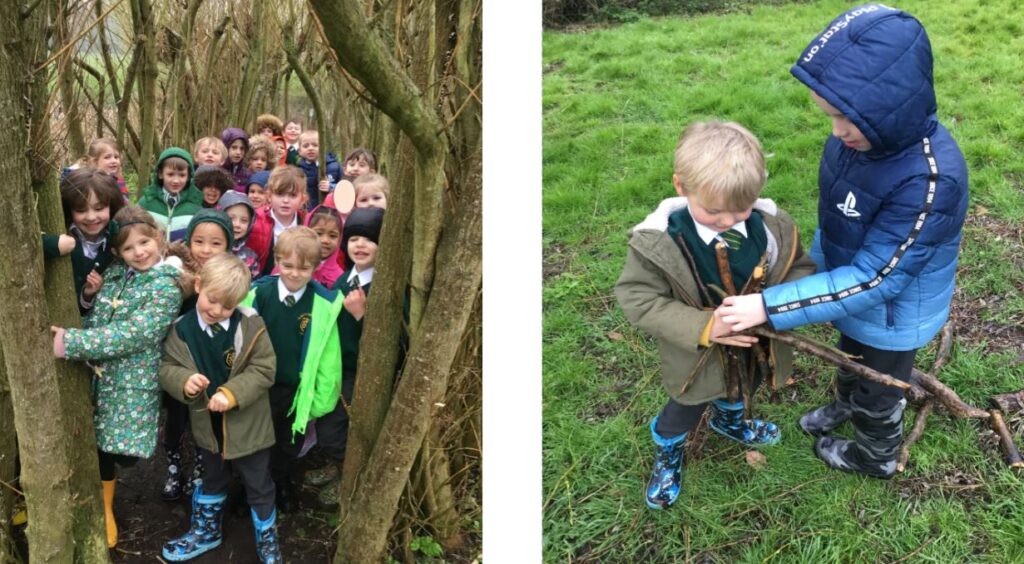At St Joseph’s, the EYFS curriculum is designed to encourage independent, inquisitive and happy learners. We recognise children’s prior learning and various starting points and create a holistic curriculum that maximises cross-curricular links and builds strong foundations for their future.
Every child is recognised as a unique individual, and we acknowledge and promote children’s interests to provide them with the opportunities to follow their imagination and creativity. In Reception, we invest time into helping children to recognise their personal goals, which allow them to reflect and aim high. We celebrate the differences in our school community, and always strive to promote a love for learning.
We recognise that children have a thirst for new experiences and knowledge and should be provided with opportunities to engage their inquisitive minds. Therefore, we provide vibrant continuous indoor and outdoor provision, that follow children’s interests, to support learners in investigating and developing their skills. We also support the transition from EYFS to KS1, through making links between the seven areas of learning within the EYFS and all subjects within the National Curriculum, to provide children with the skills and attitudes they need to succeed throughout their education.
Implementation
At St Joseph’s each term, we introduce a new topic to provide inspiration for learning, whilst providing the flexibility for children to follow their own interests and ideas. Children learn through a balance of child-initiated and adult-directed activities. Our weekly timetable is carefully structured so that children have directed teaching during the day. The timetable changes throughout the year to take into consideration the changing needs of the children. These sessions are followed by small focused group work. This means that we can check the children’s understanding and respond to any misconceptions quickly and provide verbal feedback, which results in a strong impact on the acquisition of new learning.
Children are provided with plenty of time to engage in ‘exploration’ throughout the variety of experiences carefully planned to engage and challenge them in the provision. The curriculum is planned for the inside and outside classrooms and equal importance is given to learning in both areas.
Reading is at the heart of our curriculum and our aim is to encourage a love of reading right from the start. In EYFS the aim is to expose children to a range of books that not only develop a love of reading, but have been chosen specifically to develop their oracy, vocabulary and comprehension. Through this, children begin to internalise new vocabulary, language patterns and begin to retell stories.
In Phonics we follow the DfES Letters and Sounds programme to ensure consistency across the school. At the beginning of Reception, the children are introduced to Phase 2 and then move on to phase 3 where they will develop segmenting and blending skills to decode words. During the Summer term, children may move on to Phase 4 if they are ready. Children are encouraged to read at home and are listened to regularly in school. They are given books that match their phonic knowledge in order for them to apply their learning with the aim of becoming successful, confident and fluent readers.
In Reception, we follow the White Rose Maths Scheme of work which is divided into 3 weekly units. High quality learning environments and meaningful interactions with adults, support children in developing mathematical thinking and discussion. Pupils learn through games and tasks using concrete manipulatives and pictorial structures.
Our wider curriculum is taught through the learning areas; ‘Understanding of the World’ and ‘Expressive Arts and Design’, linking to the year 1 curriculum goals, therefore, the EYFS team have a good understanding of how ELG’s feed into the National Curriculum.
Our inclusive approach means that all children learn together, but we have a range of additional intervention and support for children. This includes, for example, sessions for developing speech and language, social skills, fine motor skills, phonics, and mathematics.
Impact
Prior to children starting at St Joseph’s, The EYFS team spend time speaking to the child’s parents, previous settings and read previous learning journeys to gain an understanding of the whole child and where they are at. During the first half term in Reception, all staff use ongoing assessments, observations and conversations with the child to develop a baseline assessment. This identifies each individual’s starting points in all areas so we can plan experiences to ensure progress. The following baseline assessments are also carried out.
The RBA (statutory reception baseline assessment)
The purpose of this is to show the progress children make from Reception until the end of KS2.
Assessments are completed three times per year and shared with parents, where the Class Teacher updates the progress children have made. In the summer term, the EYFSP is completed where the class teacher will judge whether the child has met each of their ELG’s. They will be assessed as either ‘emerging’ or ‘expected.’ Whilst there is no judgement to state if a child is exceeding beyond an ELG, teachers, have a duty to provide a narrative for both parents and the Year 1 teacher.
Impact is also evident through our successful transitions into Year 1. EYFS staff have a good understanding of how ELG’s link to the National Curriculum, and through our robust planning and delivery across the spectrum of subjects – both core and foundation – children leave the EYFS stage with the skills, knowledge and confidence to continue their journey as scientists, historians, artists and geographers.





